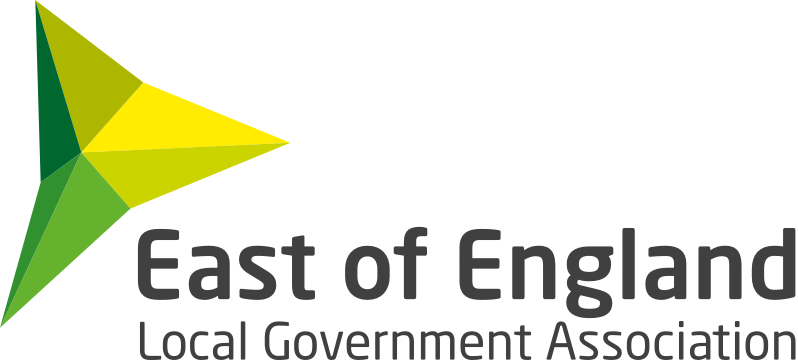The Assembly
The Assembly is responsible for:
- Appointing the Chair and Vice Chair
- Approving the annual report of accounts
- Agreeing on the subscription rates
- Affirming the Association's work programme and any other business
Management Committee
The Management Committee provides the Association's strategic direction and oversees the work programme agreed by the Assembly.
The members of the Management Committee are:
- The Chair and Vice Chair
- One nominee from each recognised political group within the Assembly
- The Chairs of the Panels (on a non-voting basis)
- The Lead Chief Executive (on a non-voting basis)
-
 View profile
View profileMatthew Hicks
Chair of EELGA -
 View profile
View profileStephen Robinson
Vice Chair of EELGA -
 View profile
View profileDan Gascoyne
Lead Chief Executive for EELGA -
 View profile
View profileGraham Butland
Conservative Representative and Chair of Infrastructure and Growth Panel -
 View profile
View profileAndrew Mellen
Green Party Representative -
 View profile
View profileRichard Siddall
Independent Representative -
 View profile
View profileMike Stonard
Labour Representative -
 View profile
View profileJacqui Taylor
Liberal Democrat Representative and Chair of Improving Outcomes for People and Communities Panel -
 View profile
View profileCliff Waterman
Chair of the Local Government Employers Panel
Local Government Employers Panel (LGEP)
The panel provides the EELGA with direction and constitutional support on regional and national:
- Workforce matters
- Skills development
- Early careers options
As an Employers' Organisation, regulated by the Certification Officer, the LGEP is responsible for representing the interests of member authorities as employers.
Throughout 2023/24, the panels Forward Work Programme will guide and support councils' workforce priorities.
Regional Joint Council
The Regional Joint Council (RJC), in conjunction with LGEP, comprises of elected LGEP members and trade union representatives from UNISON, Unite and GMB.
The forum discusses ongoing regional pay negotiations and joint secretarial guidance.
The RJC Chair is alternated each year, allowing both LGEP and the trade union side the opportunity to lead the meeting.
Infrastructure and Growth Panel
The panel provides EELGA with direction and constitutional support on their work for physical and digital infrastructure and inclusive economic growth.
In 2022/23, the panel led and influenced several successful pieces of work in the East of England, including:
- Levelling Up the East of England 2023-30: A pioneering report commended by Government Ministers and senior officials as 'doing the Government's homework for them'.
- Opening the Door Good Quality, Available and Affordable Housing in the East of England: A feature report highlighting the housing crisis and the critical planning and infrastructure issues.
- EELGA's response to the Government's consultation on changes to the National Planning Policy Framework.
Panel members regularly hear from inspiring guest speakers and promote good practices across the region.
In 2023-24, the panel will focus on the following:
- Skills
- Housing and Planning
- Transport and Connectivity
- Inclusive Economic Growth
Improving Outcomes for People and Communities Panel
The panel provides EELGA with direction and constitutional support on their work for people and community focussed services.
In 2022/23, the panel led and influenced several successful pieces of work in the East of England, including:
- Steering EELGA's advocacy activity in health, care, housing, and leisure services.
- Gaining insights into collaborative work across the education, health and care sectors from Suffolk's Health and Wellbeing Quarter.
- Housing and homelessness meetings with involvement from Build East (the partnership of Housing Associations in the region).
Panel members regularly hear from inspiring guest speakers and promote good practices across the region.
In 2023-24, the panel will focus on the following:
- The role and voice of local authorities in Integrated Care Systems
- The role of prevention, leisure and wellbeing in addressing healthy and sustainable communities
- Cost of living, fuel and food insecurity
- The impact of housing on health inequalities

